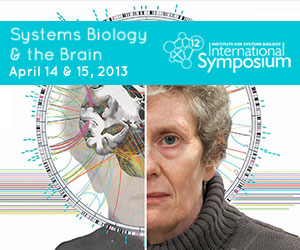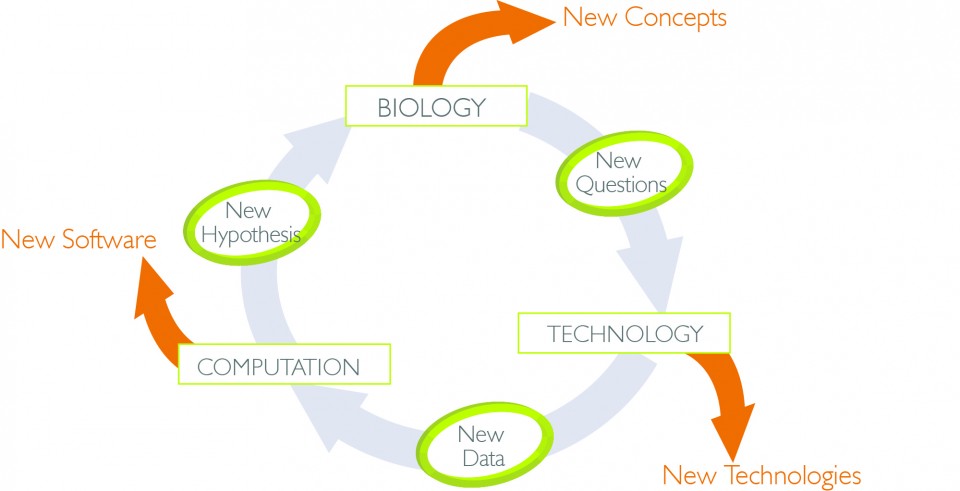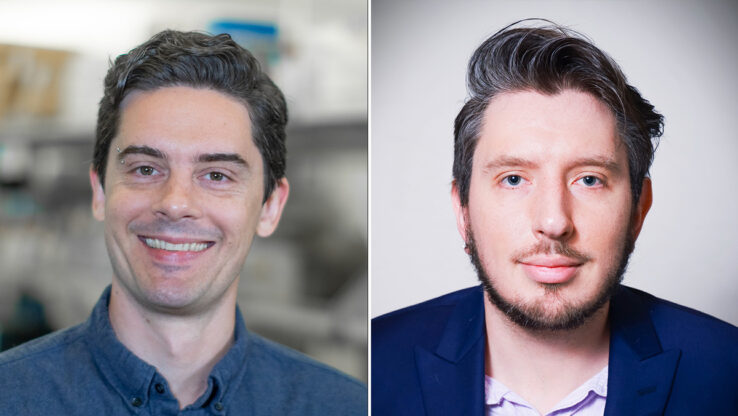Connecting the Dots: Obama’s Plan to Map the Brain
 isbscience.org/news/2013/02/18/connecting-the-dots-obamas-plan-to-map-the-brain/
isbscience.org/news/2013/02/18/connecting-the-dots-obamas-plan-to-map-the-brain/
What You Saw in the News: On Feb. 18, The New York Times published a front-page story headlined “Obama Seeking to Boost Study of Human Brain.” (Download PDF: ObamaNYTBrainMap.) While the administration has not formally announced this brain mapping project, the NYT was able to gather enough details from scientists involved in planning the project to publish a report. Participating government agencies and private foundations include the Office of Science and Technology Policy, National Institutes of Health, National Science Foundation, Howard Hughes Medical Institute, as well as Seattle’s Allen Institute for Brain Science. Here are the highlights from the story:
- “The Obama administration is planning a decade-long scientific effort to examine the workings of the human brain and build a comprehensive map of its activity, seeking to do for the brain what the Human Genome Project did for genetics.”
- After Obama’s State of the Union speech in which he mentioned investing in science and alluded to scientists who are mapping the human brain to unlock Alzheimer’s, “…Francis S. Collins, the director of the National Institutes of Health, may have inadvertently confirmed the plan when he wrote in a Twitter message: ‘Obama mentions the #NIH Brain Activity Map in #SOTU.'”
Obama mentions the #NIH Brain Activity Map in #SOTU
— Francis S. Collins (@NIHDirector) February 13, 2013
- “The initiative, if successful, could provide a lift for the economy.” Financing, if approved, would be at least $3 billion over 10 years.
- The Human Genome Project cost $3.8 billion and, according to a federal impact study, returned $800 billion by 2010.
- “Composed of roughly 100 billion neurons…the human brain is so complex that scientists have not yet found a way to record the activity of more than a small number of neurons at once, an in most cases that is done invasively with physical probes.”
ISB’s Connection: With a mission to tackle biological complexity, ISB has pioneered systems biology approaches that put our scientists and collaborators in a prime position to take on the challenge of demystifying the brain. We believe the Obama administration’s idea to launch Brain Activity Map project comes at an exciting and pivotal time.
In fact, ISB’s 12th Annual International Symposium, which takes place in Seattle on April 14-15, will focus on “Systems Biology and the Brain.” ISB’s brain-related research spans across nine of our lab groups and covers such diseases as Alzheimer’s, ALS, glioblastoma multiforme, bipolar disorder, and PTSD. Dr. Christof Koch, the chief scientific officer at Allen Institute for Brain Science (one of the private foundations involved in the Brain Activity Map), will keynote the Symposium. There also will be a public Town Hall event related to the Symposium (details to come). Why does ISB’s connection to brain research matter? Here are several key reasons:
- Systems biology is well-suited to attack the complexity of the brain, because it offers a collaborative, cross-disciplinary, holistic and integrative approach to research that allows our scientists to reverse-engineer problems, develop necessary technologies to perform the analysis, and create predictive solutions. (Read Dr. Lee Hood’s eloquent essay about the Imperative of Systems Biology: LeeHood_ImperativeofSystemsBiology copy.)
- ISB uses the most-advanced technologies available on the market. Our mass spectrometry lab, for example, is the largest on the West Coast and our proteomics program is at the leading edge. If a technology or analysis tool doesn’t exist, we innovate or invent it.
- ISB’s trinity of biology drives technology drives computation: It’s an evolving cycle that pushes forward the science and the technology to achieve big breakthroughs.









